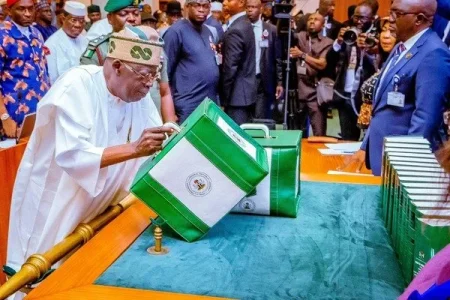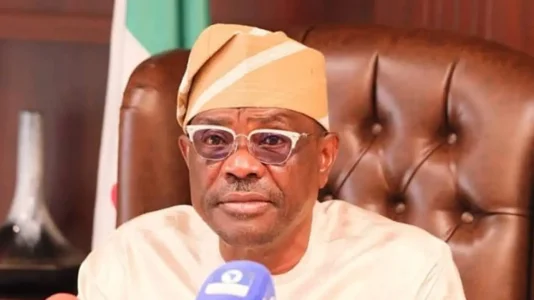
President Bola Tinubu has proposed a ₦47.9 trillion budget for 2025, marking a 35% increase from the previous year. The budget focuses on economic growth, fiscal stability, and strategic reforms, including new borrowings, capital expenditure, and oil price benchmarks. It will require National Assembly approval.
Nigerian President Bola Tinubu has submitted a historic ₦47.9 trillion budget proposal for the 2025 fiscal year, marking a 35% increase over the previous year’s ₦35.5 trillion budget. The proposal, which includes the 2025-2027 Medium Term Expenditure Framework (MTEF) and Fiscal Strategy Paper (FSP), was presented to the National Assembly as a key step in advancing the country’s economic reforms and fiscal management.
The budget breakdown allocates ₦9.92 trillion for non-debt recurrent expenditure, ₦7.72 trillion for capital projects and ₦8.25 trillion to service national debt. The government is also earmarking ₦1.37 trillion for statutory transfers, alongside a sinking fund of ₦243.66 billion.
Minister of Budget and Economic Planning, Atiku Bagudu, explained the proposal, emphasizing a budget deficit funded by new borrowings of ₦9.2 trillion, representing 3.87% of the projected GDP. The MTEF forecasts a 4.6% growth rate for Nigeria’s GDP, alongside an oil price benchmark of $75 per barrel, oil production targets of 2.06 million barrels per day, and an exchange rate of ₦1,400 to the dollar.
The government also plans to prioritize the deregulation of petroleum prices and exchange rates, with a focus on reducing oil and gas production costs. Bagudu also hinted at potential amendments to the Petroleum Industry Act (PIA) to address risks and ensure sustainable growth.
Once approved by the National Assembly, this ambitious budget aims to drive Nigeria’s economic growth while addressing critical fiscal challenges, laying the groundwork for key infrastructure projects and reforms.




